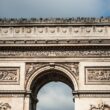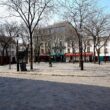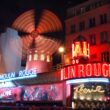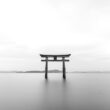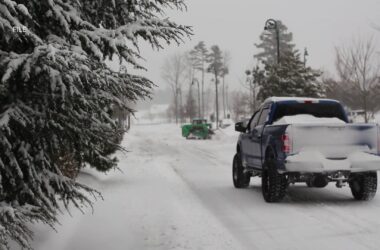When it comes to visiting Vancouver, timing can make a significant difference in your experience. This picturesque city, surrounded by stunning natural beauty and a vibrant urban atmosphere, offers a range of activities and attractions that vary with the changing seasons. Whether you’re a nature enthusiast, an adventure seeker, or a culture lover, Vancouver has something to offer year-round. In this article, we’ll delve into the best times to visit Vancouver, taking you on a journey through its different seasons and what they have in store for visitors.
Table of Contents
- Introduction
- Springtime Serenity
- Summer Splendors
- Fall Foliage and Festivals
- Winter Wonderland
- Exploring Vancouver’s Culinary Scene
- Outdoor Adventures for Thrill-Seekers
- Cultural Immersion in the City
- Finding the Perfect Accommodation
- Navigating Vancouver’s Transportation
- Packing Tips for Your Vancouver Trip
- Capturing Picture-Perfect Moments
- Safety and Etiquette for Travelers
- Conclusion
- Frequently Asked Questions
1. Introduction
Vancouver, nestled between the Pacific Ocean and the Coast Mountain Range, offers a diverse range of experiences throughout the year. From its mild climate to its breathtaking landscapes, there’s no shortage of reasons to explore this Canadian gem.
2. Springtime Serenity
Spring, from March to May, marks the awakening of Vancouver’s lush greenery. The city’s many gardens, including the famous Butchart Gardens, burst into colorful bloom during this time. The moderate temperatures make it ideal for strolling along Stanley Park’s seawall or exploring Granville Island’s artisan shops.
3. Summer Splendors
Summer, from June to August, is peak tourist season for a reason. The warm and dry weather allows for outdoor adventures like kayaking in False Creek, hiking in Grouse Mountain, and enjoying open-air concerts. Don’t miss the Celebration of Light, an annual fireworks competition that lights up the sky.
4. Fall Foliage and Festivals
Fall, from September to November, brings a breathtaking display of autumn colors to Vancouver’s landscapes. The city comes alive with various festivals, including the Vancouver International Film Festival. Take a day trip to Whistler to witness nature’s canvas of reds and golds.
5. Winter Wonderland
Winter, from December to February, offers a different charm. While the city rarely sees snow, nearby ski resorts like Cypress Mountain and Mount Seymour provide winter sports enthusiasts their fix. Explore the festive lights of the VanDusen Botanical Garden or hit the local slopes.
6. Exploring Vancouver’s Culinary Scene
No matter the season, Vancouver’s culinary scene is a treat. From seafood delights at the Granville Island Public Market to diverse international cuisines on Commercial Drive, your taste buds are in for an adventure.
7. Outdoor Adventures for Thrill-Seekers
For the adrenaline junkies, Vancouver delivers. Try zip-lining on Grouse Mountain, mountain biking in the North Shore trails, or testing your courage on the Capilano Suspension Bridge.
8. Cultural Immersion in the City
Immerse yourself in Vancouver’s cultural diversity by visiting neighborhoods like Chinatown and Punjabi Market. Explore the Museum of Anthropology for insights into Indigenous history and art.
9. Finding the Perfect Accommodation
Vancouver offers accommodation options for every budget and preference. From luxury hotels downtown to cozy bed-and-breakfasts in Kitsilano, you’ll find the perfect place to rest after a day of exploration.
10. Navigating Vancouver’s Transportation
The city’s well-connected public transportation system makes it easy to get around. Consider purchasing a Compass Card for convenient access to buses, SkyTrain, and SeaBus.
11. Packing Tips for Your Vancouver Trip
Layering is key due to the changing weather. Pack a waterproof jacket, comfortable walking shoes, and don’t forget your camera to capture the stunning landscapes.
12. Capturing Picture-Perfect Moments
Vancouver’s beauty is unparalleled. Capture the city’s essence by photographing the skyline from Stanley Park or the stunning sunset views at English Bay.
13. Safety and Etiquette for Travelers
While Vancouver is generally safe, it’s essential to be mindful of your belongings and surroundings, especially in crowded areas. Respect the city’s eco-friendly culture by disposing of waste responsibly.
14. Conclusion
In conclusion, the best time to visit Vancouver depends on your preferences and the experiences you seek. Whether you’re mesmerized by blooming gardens, thrilled by outdoor adventures, or enchanted by cultural discoveries, Vancouver welcomes you with open arms year-round.
Similar Articles
15. Frequently Asked Questions
Q1: What is the best time for outdoor activities in Vancouver?
A1: The best time for outdoor activities in Vancouver is during the summer months, from June to August. The warm and dry weather during this time makes it ideal for hiking, kayaking, and enjoying various outdoor adventures.
Q2: Are there any festivals in the winter months?
A2: Yes, there are several festivals in Vancouver during the winter months. The most notable is the “Vancouver Christmas Market,” which features festive lights, seasonal treats, and holiday-themed attractions.
Q3: How can I travel between downtown Vancouver and North Shore easily?
A3: The most convenient way to travel between downtown Vancouver and the North Shore is by using the SeaBus, a passenger ferry that connects Waterfront Station in downtown to Lonsdale Quay in North Vancouver.
Q4: What are some family-friendly attractions in the city?
A4: Vancouver offers plenty of family-friendly attractions, such as the Vancouver Aquarium, Science World, and the Stanley Park Horse-Drawn Tours. The Capilano Suspension Bridge Park is also a great option for families.
Q5: Where can I experience Indigenous culture in Vancouver?
A5: To experience Indigenous culture, visit the Museum of Anthropology at the University of British Columbia. It features a diverse collection of Indigenous art, artifacts, and exhibits that provide insights into the rich history and culture of the First Nations peoples.

